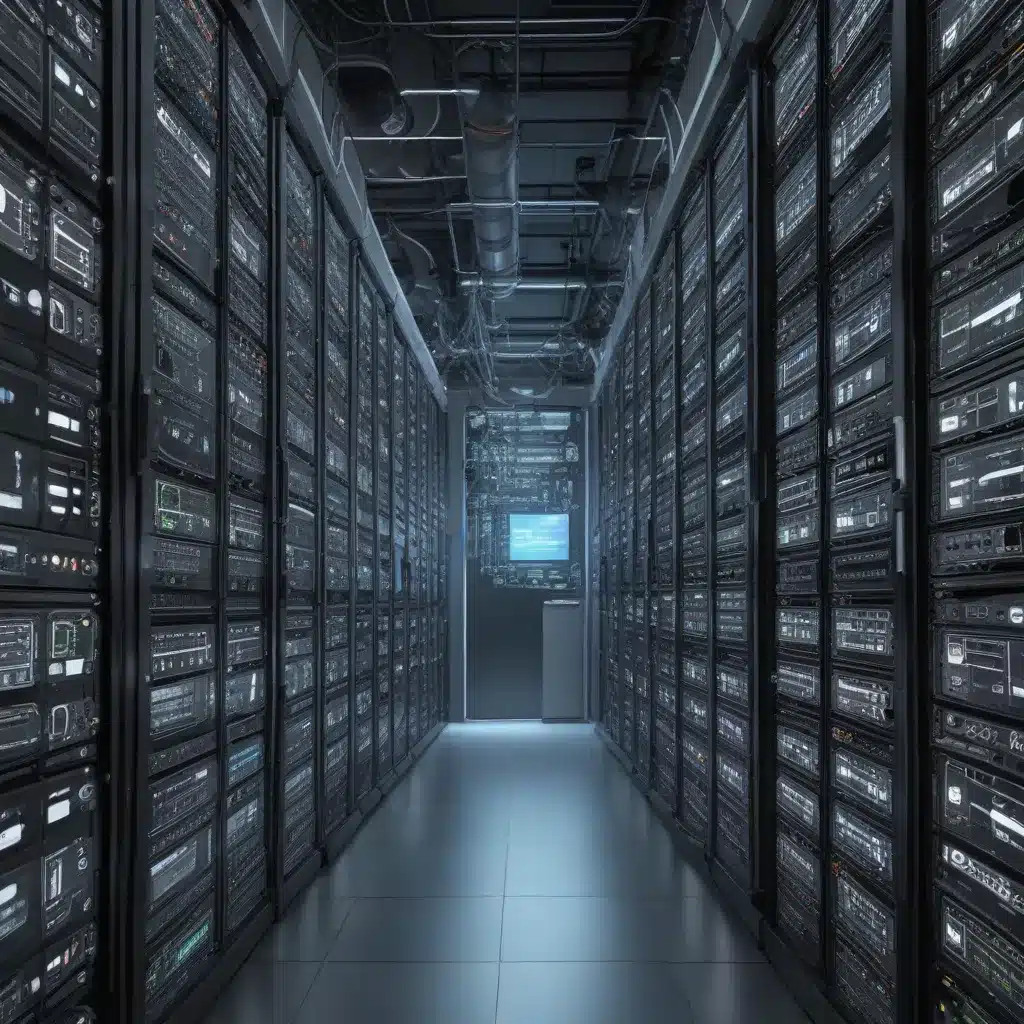
Ubiquitous Computing
The rapid evolution of technology has ushered in a new era of ubiquitous computing, where digital devices and AI-powered systems are seamlessly integrated into our everyday lives. From smart home assistants and IoT-enabled appliances to wearable health trackers and autonomous vehicles, we are surrounded by an ever-expanding network of interconnected, intelligent devices that collect, process, and exchange vast amounts of data.
Ambient Computing
Ambient computing, a key component of this ubiquitous landscape, refers to the seamless integration of technology into our physical environments, creating an “ambient” digital layer that anticipates our needs and responds intelligently without explicit user input. This intelligent, context-aware computing promises to enhance productivity, convenience, and overall quality of life, but it also introduces new challenges when it comes to data management and protection.
Internet of Things (IoT)
The Internet of Things (IoT) is a crucial enabler of ambient computing, allowing devices, sensors, and systems to communicate and share data across networks. IoT devices, ranging from home appliances to industrial equipment, generate massive volumes of data that must be effectively managed, secured, and backed up to ensure the continuity of critical services and the protection of sensitive information.
Artificial Intelligence (AI)
Artificial Intelligence (AI) is another driving force behind the rise of ubiquitous computing, powering the intelligent decision-making and automation that underpins ambient systems. AI algorithms analyze data from IoT devices, identify patterns, and make real-time adjustments to optimize performance and user experiences. Ensuring the reliability and security of these AI-driven systems is paramount, as they become increasingly integral to our daily lives.
Evolving Data Landscape
As our reliance on ubiquitous, AI-powered technologies deepens, the volume, variety, and velocity of data generation are expanding exponentially. This evolving data landscape presents both opportunities and challenges when it comes to effective data management and protection.
Data Generation and Storage
The proliferation of IoT devices, wearables, and ambient sensors has led to a data explosion, with vast amounts of information being generated and stored across distributed systems and cloud platforms. Effectively managing and securing this data is crucial, as it often contains sensitive personal, financial, and health-related information.
Distributed and Edge Computing
To address the challenges posed by the sheer volume of data, the computing industry has shifted towards distributed and edge computing architectures. Rather than relying solely on centralized cloud storage, data is increasingly being processed and stored at the edge, closer to the source of generation. This distributed model introduces new considerations for data backup and disaster recovery strategies.
Cloud Computing
Cloud computing remains a crucial component of the ubiquitous computing landscape, providing scalable, on-demand storage and computing resources. However, the shift towards cloud-based services and the distributed nature of data storage heighten the need for comprehensive backup and recovery solutions to protect against data loss, system failures, and security breaches.
Backup Strategies
In this era of ubiquitous, AI-powered computing, traditional backup methods are no longer sufficient to safeguard the growing volume and complexity of data. Businesses and individuals must adopt more sophisticated backup strategies to ensure the protection and resilience of their digital assets.
Traditional Backup Methods
Conventional backup methods, such as local storage, external hard drives, and tape backups, still have a place in the modern data landscape. However, these approaches often struggle to keep pace with the rapid growth of data and the need for real-time, on-demand access to information.
Cloud-based Backup Solutions
Cloud-based backup solutions have emerged as a popular and effective alternative, leveraging the scalability, accessibility, and security of cloud infrastructure. These services, offered by providers like IT Fix, enable automatic, continuous backups of data stored across various devices and platforms, ensuring that critical information is protected and readily available in the event of a disaster or system failure.
Hybrid Backup Approaches
To address the unique challenges of the ubiquitous computing era, many organizations and individuals are adopting hybrid backup approaches that combine the benefits of traditional and cloud-based methods. This approach allows for the seamless integration of on-premises storage, remote cloud backups, and edge computing devices, providing a comprehensive and resilient data protection strategy.
Challenges in Data Protection
As the ubiquitous computing landscape continues to evolve, organizations and individuals face a range of challenges when it comes to effectively protecting their data.
Data Security and Privacy
The proliferation of connected devices and the widespread sharing of data across networks heighten the risk of data breaches, cyber attacks, and unauthorized access. Ensuring the security and privacy of sensitive information is a critical concern, requiring robust encryption, access controls, and comprehensive incident response plans.
Compliance and Regulatory Requirements
In many industries, data protection is subject to stringent regulatory requirements, such as HIPAA in healthcare or GDPR in the European Union. Adhering to these regulations while maintaining effective backup and recovery strategies is a complex and ongoing challenge for organizations operating in the ubiquitous computing space.
Backup Automation and Optimization
The sheer volume of data generated by IoT devices, ambient sensors, and AI-powered systems necessitates the automation and optimization of backup processes. Businesses and individuals must leverage advanced tools and techniques, such as machine learning and predictive analytics, to ensure that backups are efficient, reliable, and aligned with evolving data protection needs.
As the ubiquitous computing revolution continues to transform our digital landscape, the importance of comprehensive data backup and protection strategies cannot be overstated. By embracing cloud-based solutions, hybrid approaches, and cutting-edge backup automation techniques, organizations and individuals can safeguard their critical data and ensure the resilience of their AI-powered, IoT-enabled environments. With a proactive and strategic approach to data management, we can navigate the challenges of the ubiquitous computing era and unlock the full potential of these transformative technologies.












